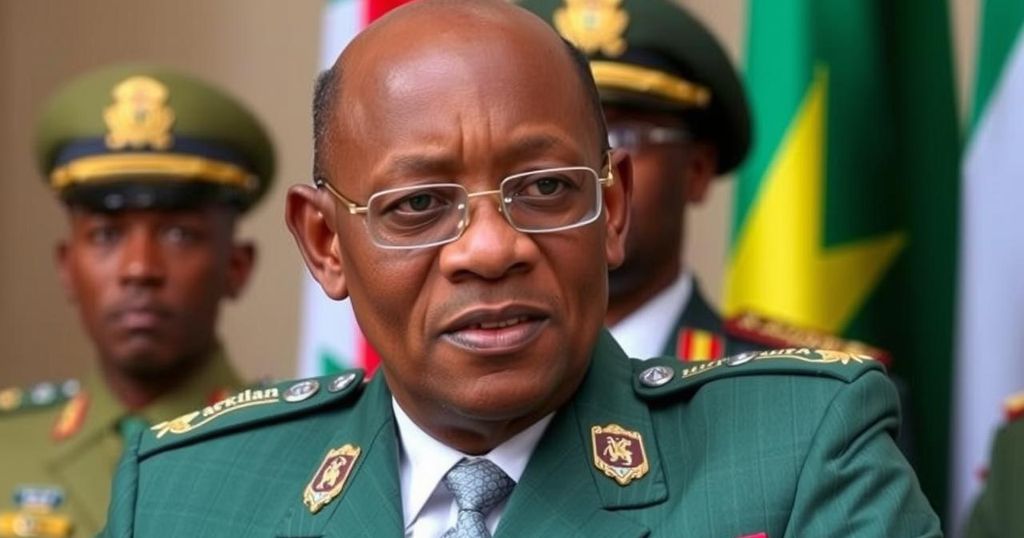South Sudan’s Leadership Shake-Up: President Kiir Dismisses Top Officials
South Sudan’s President Salva Kiir has dismissed key military, police, and central bank officials, amidst indications of unrest in the army related to unpaid wages. Appointments include Paul Nang Majok as army head, Abraham Peter Manyuat as police chief, and the reinstatement of Johnny Ohisa Damian as central bank governor. This reshuffle occurs in a context of ongoing instability and economic challenges since the civil war began in 2013.
In a significant reshuffle within South Sudan’s leadership, President Salva Kiir has dismissed the military chief, police head, and central bank governor. Announced on state broadcaster SSBC, the changes included appointing Paul Nang Majok as the new chief of defence forces, replacing General Santino Wol. Observers suggest these removals may relate to unrest within the military, particularly due to soldiers reportedly going without wages for almost a year. Kiir’s recent actions, which come amidst a backdrop of escalating unrest including a gunfire incident in Juba, signal ongoing volatility in South Sudan’s governance. The appointed police chief is Abraham Peter Manyuat, taking over from Atem Marol Biar, while Johnny Ohisa Damian returns as central bank governor after his earlier dismissal in October. Frequent leadership changes in key governmental roles reflect deep-rooted issues within the nation’s governance as it strives for stability following years of civil unrest, with South Sudan’s economy suffering greatly since the outbreak of war in 2013. Although the country formally established peace in 2018, tensions continue to simmer, exacerbated by social unrest and delayed national elections pushed back to December 2026.
South Sudan has experienced considerable political instability since its independence from Sudan in 2011, particularly highlighted by a devastating civil war commencing in 2013. The recent dismissal of prominent officials including military and policing leaders arises from heightened unrest and dissatisfaction among military personnel demanding overdue wages. Previous leadership changes have been common, with historical shifts in roles such as the central bank governor occurring frequently, signaling systemic challenges within the nation’s administrative structures. The economy remains in a dismal state following years of turmoil, further complicating governance and public trust in leadership.
President Kiir’s recent dismissals of top security and financial leaders underscore the fragile nature of South Sudan’s political landscape. The changes reflect underlying issues within the army and signify the ongoing struggle for stability in a country still recovering from years of conflict. As tensions mount and economic distress persists, the government’s path forward requires urgent attention to public grievances and a commitment to sustainable governance practices.
Original Source: www.arabnews.com




Post Comment